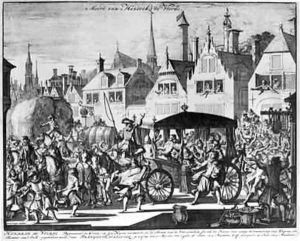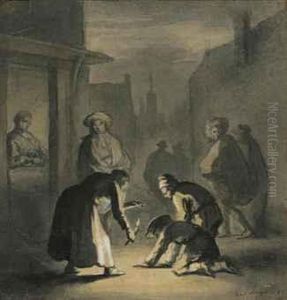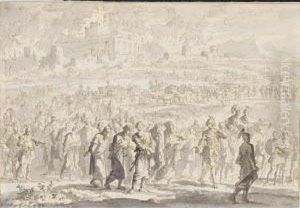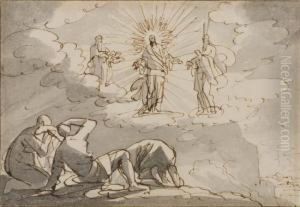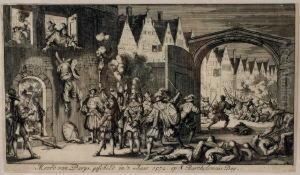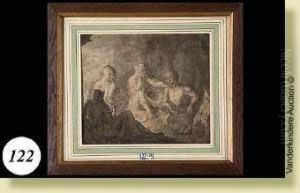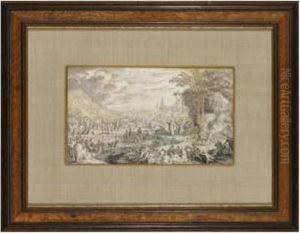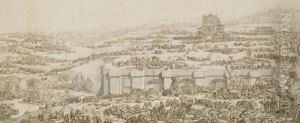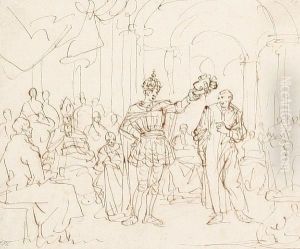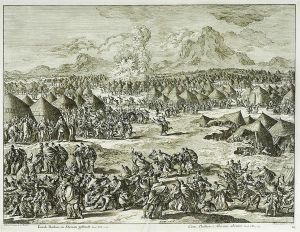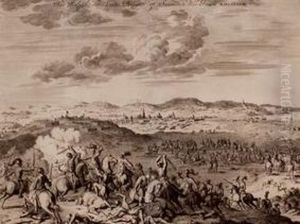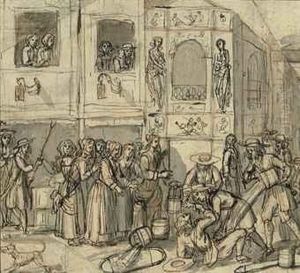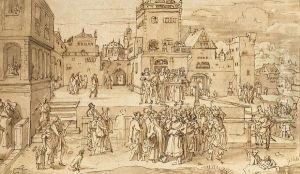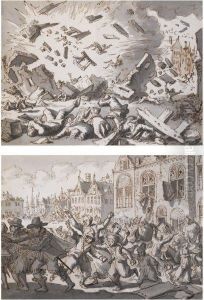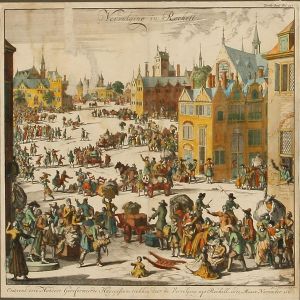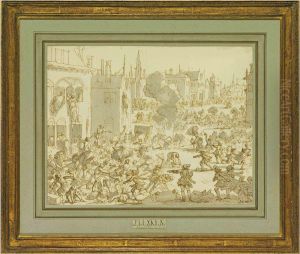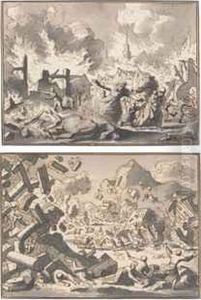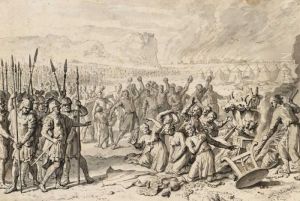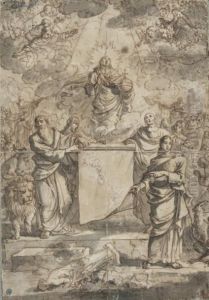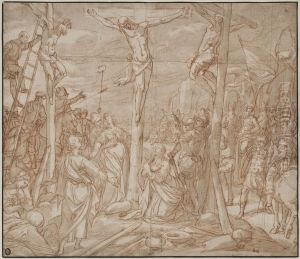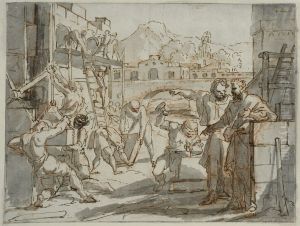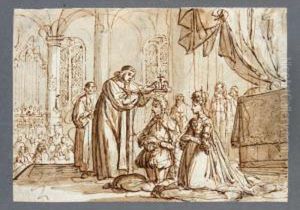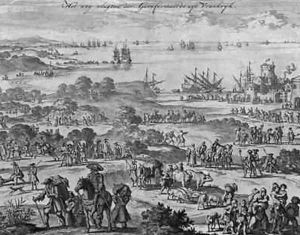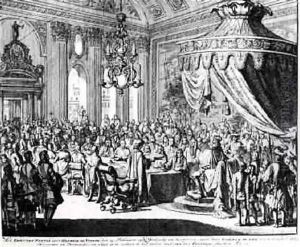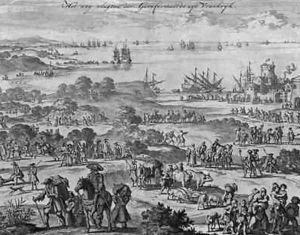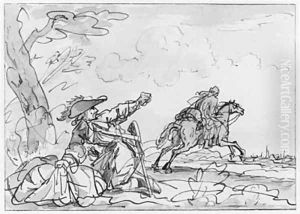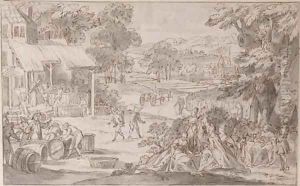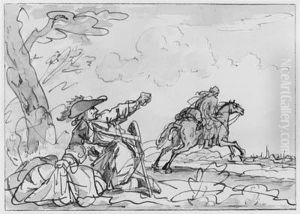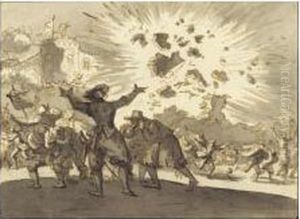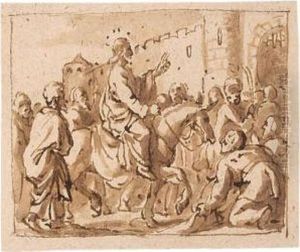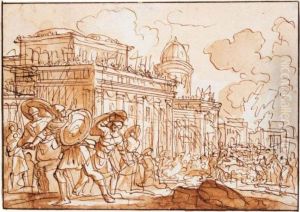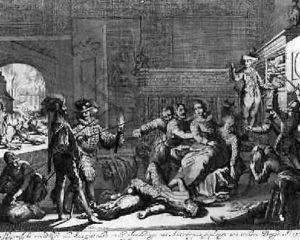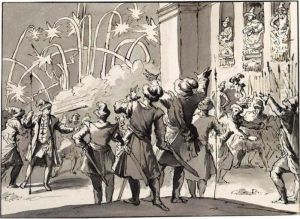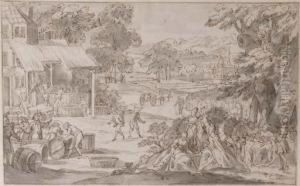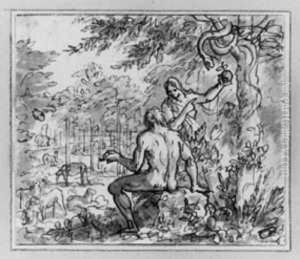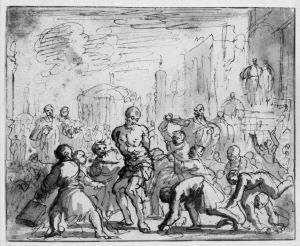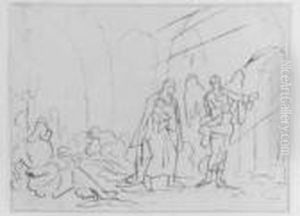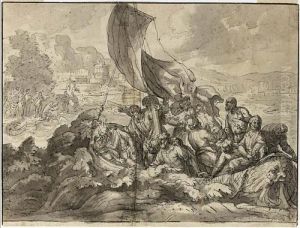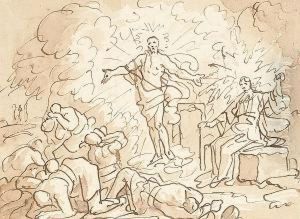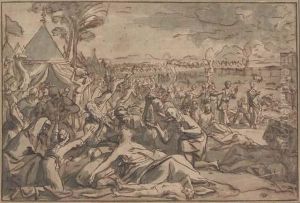Jan Luyken Paintings
Jan Luyken, also spelled Luiken, was a Dutch poet, illustrator, and engraver, born on April 16, 1649, in Amsterdam, Netherlands. He is best known for his detailed engravings, which often carried moralistic and religious messages. Luyken was raised in a wealthy family, and his initial exposure to art came through his father, who was a school teacher and had a collection of paintings.
Luyken's artistic talent emerged early, and by the age of 19, he had already published his first book of poems and etchings. Despite his early success in the arts, it wasn't until after he experienced a religious conversion in his mid-twenties that he fully embraced his career as an artist. This conversion had a profound impact on his work, infusing it with spiritual and moral themes.
Throughout his career, Jan Luyken produced more than 3,000 engravings, many of which were featured in books. One of his most famous works is the illustration series for the 'Martyrs Mirror', a book detailing the suffering of Anabaptist martyrs. His engravings for this publication are still held in high regard for their emotional depth and technical skill.
In addition to religious works, Luyken also illustrated books on a wide range of subjects, including history and science. His style is characterized by a remarkable attention to detail and a talent for capturing human emotion. His illustrations often included elaborate scenes of daily life, landscapes, and allegorical figures.
Jan Luyken's contribution to Dutch art is significant, and his engravings are considered an important part of the Baroque period in the Netherlands. His work not only reflects the cultural and religious milieu of his time but also showcases his mastery of the etching medium. Luyken passed away on April 5, 1712, in Amsterdam. Today, his works are preserved in various museums and collections around the world, attesting to his lasting legacy as an artist and engraver.
